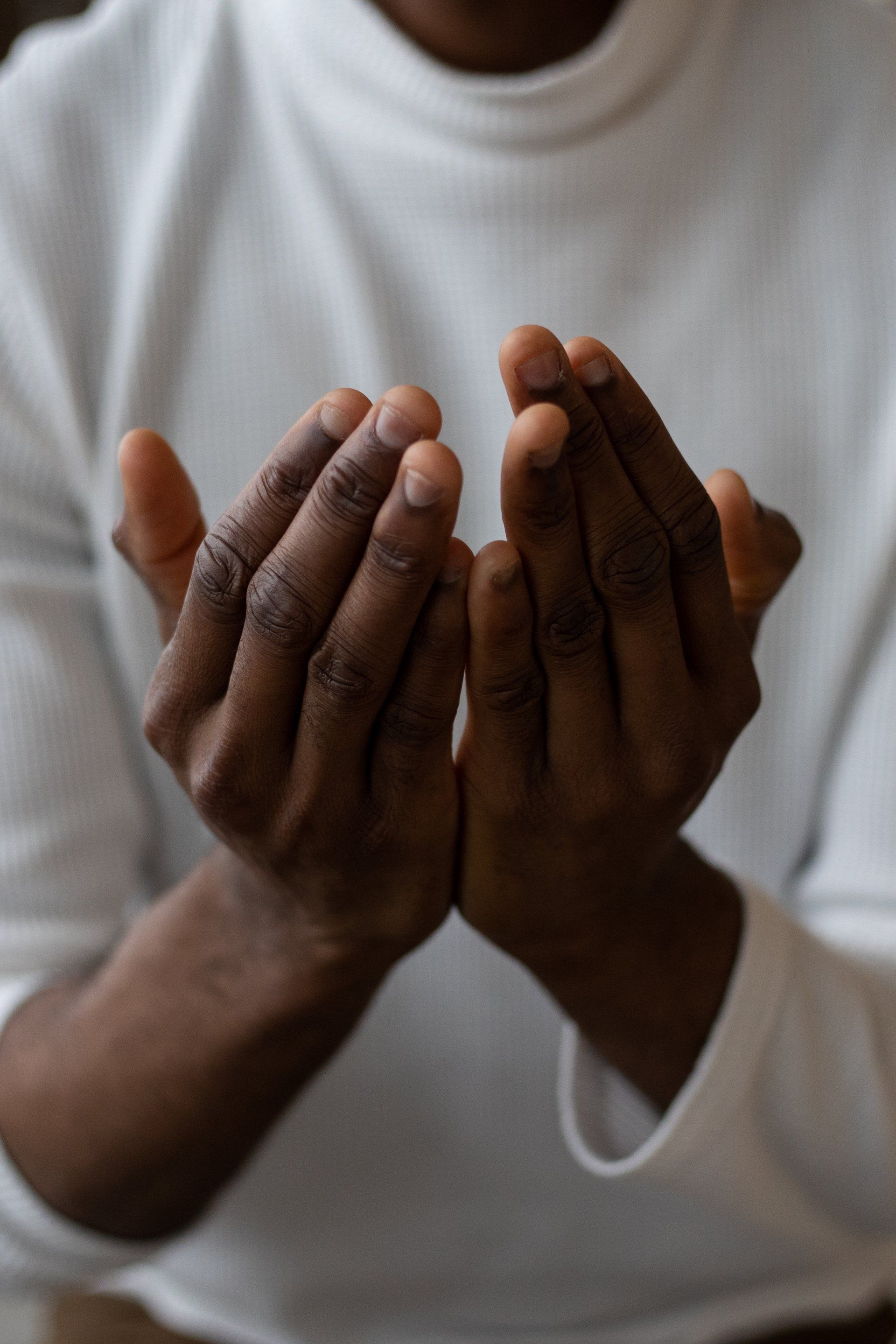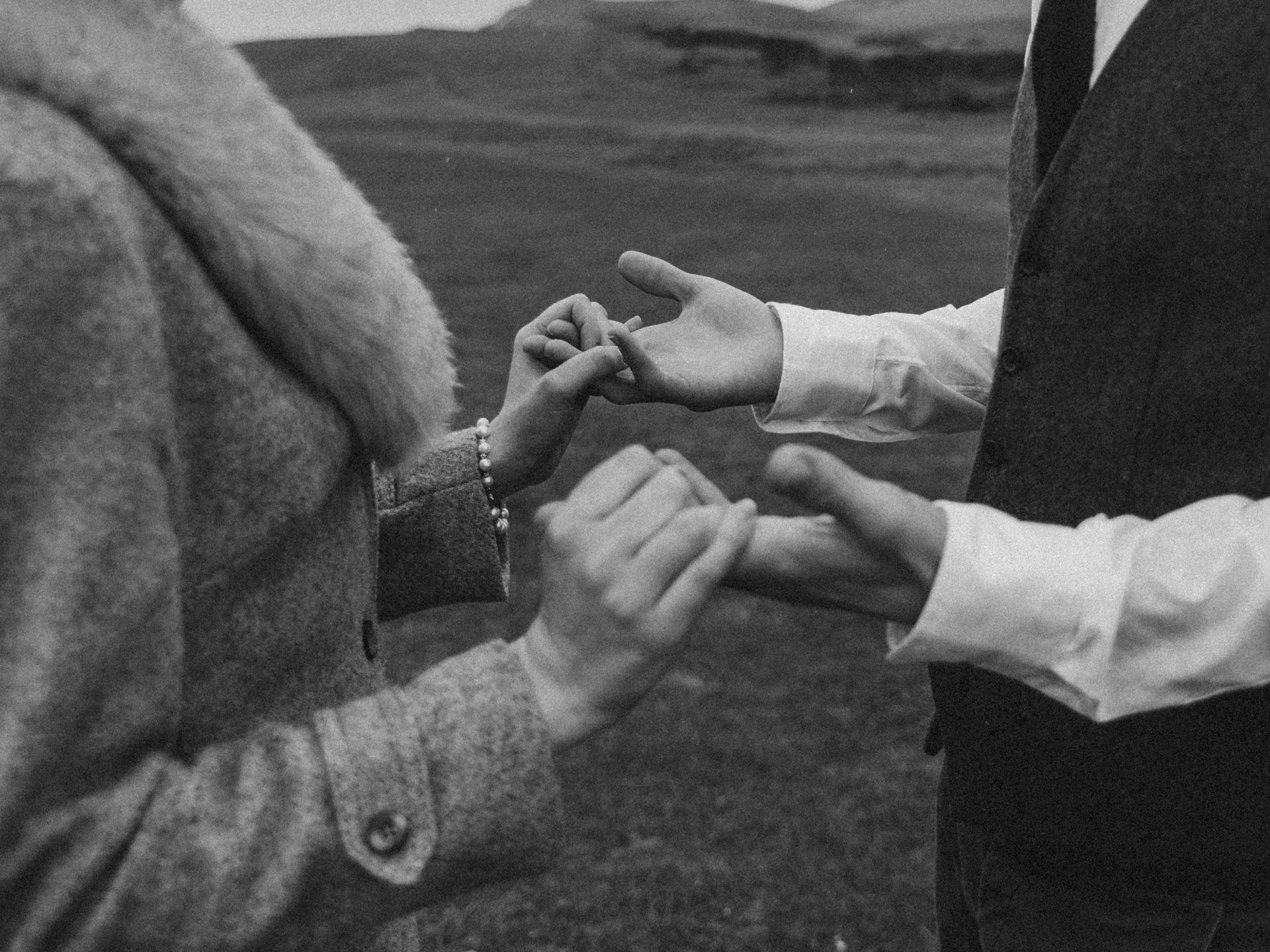Palms Up Palms Down
Robyn Black • October 19, 2021
Psalm 25, 3rd October 21

I really love this Psalm and it seems to me that it’s written from the perspective of an older person. That’s why I chose this Psalm today, with last Friday being the International Day of the Older Person. Many scholars believe that Psalm 25 was written by King David much later in life when his son Absalom organised a coupe against David. It’s like David is looking back over his life, thinking about the scrapes and dramas he was involved in as a younger person, and God’s faithfulness. There’s a certain reflectiveness to this Psalm I think.
The Psalmist starts out by stating their absolute trust in God.
“In you, Lord my God, I put my trust. I trust in you; do not let me be put to shame, nor let my enemies triumph over me. No one who hopes in you will ever be put to shame, but shame will come on those who are treacherous without cause.” (Psalm 25:1-3)
Now King David clearly had some issues in life. He talks about his enemies here, and it’s safe to say that though we think life gets easier as we get older, the issues are just different. When we’re younger the issues may be around where should I work, do I want to date this person, what’s my purpose in life. Or that person seems to have changed since they got married, or there’s been a falling out with a friend and now we haven’t spoken a word for years.
Older people also face issues, or to use David’s language “enemies”. It could be an enemy of physical ill health. Or it could be mental health – certainly it’s very common as people get older for them to experience depression. Beyond Blue, a support service for people experiencing depression says
“It is thought that between 10 and 15 per cent of older people experience depression and about 10 per cent experience anxiety. Rates of depression among people living in residential aged-care are believed to be much higher, at around 35 per cent.”
Older people struggle with the questions around living at home, should I get someone in to help out, can I ask for help, should I move? Like the Psalmist we say “I trust you God, I put my trust in you, don’t let me be put to shame”. I PUT my trust in you...it’s an active thing.
A little while back I read a book called a ‘A man called Peter’, about Peter Marshall, a Scottish Presbyterian minister who moved to the United States in the late 1920’s, and eventually was the chaplain to the senate. Peter made the point that to trust God, often means that we have to take our hands off our problems and hand them over to God, trusting Him, whatever the outcome. In difficult circumstances, he would endeavour to hand over the problem to God and say “The problem is now yours, in all it’s ramifications. I promise to be hands off” (p 199). It involves a lot of trust, and it involves a lot of patience.
Richard Foster wrote Celebration of Discipline, and he had a way of praying that he called, “Palms Down, Palms Up”. He said
“Begin by placing your palms down as a symbolic indication of your desire to turn over any concerns you may have to God. Inwardly you may pray, ‘Lord, I give to you my anger toward John. I release my fear of my dentist appointment this morning. I surrender my anxiety over not having enough money to pay the bills this month.’ Whatever it is that weighs on your mind or is a concern to you… release it. You may even feel a certain sense of release in your hands.”
“After several moments of surrender, turn you palms up as a symbol of your desire to receive from the Lord. Perhaps you will pray silently, ‘Lord, I would like to receive your divine love for John, your peace about my dentist appointment, your patience, your joy’.”
Psalm 25:4-5, King David says “Show me your ways, Lord, teach me your paths. Guide me in your truth and teach me, for you are God my Saviour, and
my hope is in you all day long.”
King David is humble. He knows he doesn’t have the answers and he says to God ‘You are my only hope. Please show me Your path’. He’s saying to God, all I want is Your will. But here’s the thing, this also requires something from us.
Imagine if you were out at in the middle of the night – the nights are pretty cold at the moment. It’s dark, damp and foggy, and you’re in an unfamiliar part of the bush where your phone has lost it’s signal. You’re desperate to get home, desperate to be warm. And you come across 2 paths…but which one leads home. Which one leads to safety? You’ve stuck there immobilised, when you suddenly realise your phone has a little signal and you can access a map to work out which way you need to go. What is needed is action. You’ve received guidance but you need to walk the path. No point knowing which path to take and then doing nothing about it. King David pleads with God to teach him, show him, guide him…but David has to take that path, has integrate that teaching into his life.
Jesus was really clear on this. Matthew 28: 18-20 says “Then Jesus came to them and said, ‘All authority in heaven and on earth has been given to me. Therefore go and make disciples of all nations, baptising them in the name of the Father and of the Son and of the Holy Spirit, and teaching them to obey everything I have commanded you. And surely I am with you always, to the very end of the age.’”
Jesus doesn’t say that discipleship is about knowing Jesus commands and teaching. He says that discipleship is teaching to OBEY everything Jesus said. Obey. That’s not such a popular would, but it really just means walking that path. Jesus shows us the way to go and we walk that path. We integrate it into our life. If we’re learning from God, but walking our own path, we can’t really be called a disciple. For all of us at any age, the call is to walk the talk, to put in to action what we’ve learnt and what God has taught us.
The Psalmist then says, “Remember, Lord, your great mercy and love, for they are from of old. Do not remember the sins of my youth and my rebellious ways; according to your love remember me, for you, Lord, are good.” (verses 6-7).
These verses speak to me of regrets and things we’ve held on to. I remember visiting a lady in her 80’s and she had felt called to Officership, but she married and her husband wasn’t interested in Officership. She never got to college and 60 years later she said to me “Robyn, I’ve always regretted the decision I made to marry instead of following God’s plan for me”.
You know some people say, “I don’t have any regrets, life is too short for regrets”. I say, if you don’t have regrets it just means you haven’t done anything worth regretting! There’s a myriad of things you could regret…not talking to someone before they died, not saving money when you were young, becoming involved with the wrong person, putting someone’s life at risk, using drugs/alcohol/sex/work/ to excess, not telling someone you love them. If you have something you regret, have a think about it. My prayer for you is ‘Remember, Lord, your great mercy and love…Do not remember the sins of our youth and our rebellious ways; according to your love remember us, for you, Lord, you are good.” God loves you…mistakes and all. But perhaps it’s time to ask God’s forgiveness and then live so as to minimise future regrets.
Is there an issue you need to trust God with - turning over your issues and problems to God? Is today about learning the way of Jesus and obeying, following his path? Or perhaps receiving the love of God, especially at that point of regret, asking God’s forgiveness, and forgiving yourself?
Sermons For The Moment

This is an interesting Psalm – another psalm of ascent. We spoke about these Psalms of Ascent a few weeks ago. They were songs the Jewish people sang as they made their way to Jerusalem to go to the temple, through the forest, along the tracks, camping by the roads. And I believe songs like this kept them focussed and kept their spirits up. I can imagine days of walking together, tiring, boring, hot and dusty. And singing some of these Psalms keep them focussed on the faithfulness of God. Much better then eye spy for the kids. Journeys are not all their cracked up to be even if the destination is worth it. As you know, when I was growing up we always holidayed at Bawley Point past Ulladulla, and in those days it was about a 4 hour drive from Sydney. We always left later than we meant to…and the last 20 mins was on a dirt road. One year when I was probably about 4 years old it was dark by the time we got to the dirt road, and half way along the dirt road, was a dodgy wooden bridge over a river. I think part of the bridge had been damaged and we had to wait a bit in the pitch black darkness before we could proceed. Dad was out with a torch ensuring the bridge was safe to drive on and mum and us 4 kids were sitting in the darkness – no street lights, no moonlight. Of course, you might be able to guess what I said to mum in that car, with fearful crying…you’ve probably heard it from kids before. I said ‘I want to go home’. Mum said to me, ‘we can’t go home Robyn, we’re almost there’. In truth, after the bridge we had the last 10 minutes of a 4 hours journey left. We safely crossed the bridge and we were OK. But I remember it. I remember the feeling of being scarred in the darkness. I remember not liking this journey at all. Even though I always loved the destination. Well this psalm celebrates the end of the journey and the arrival at the destination. Psalm 126:1-3, “When the Lord brought back his exiles to Jerusalem, it was like a dream! We were filled with laughter, and we sang for joy. And the other nations said, “What amazing things the Lord has done for them.” Yes, the Lord has done amazing things for us! What joy!” Before we can understand the laughter and joy of the Israelites, we have to understand their journey. This Psalm looks back to when they arrived back in Jerusalem after 70 long years in Babylon. The captives had experienced great sorrow and mourning in exile. We read these heartbreaking words in Psalm 137: “Beside the rivers of Babylon, we sat and wept as we thought of Jerusalem. We put away our harps, hanging them on the branches of poplar trees. For our captors demanded a song from us. Our tormentors insisted on a joyful hymn: “Sing us one of those songs of Jerusalem!” But how can we sing the songs of the Lord while in a pagan land?” (Psalm 137:1-4). Their tormentors demanded they sing joyfully, but they were like – that’s impossible, it doesn’t come from our heart. So they just sat by the waters of Babylon and wept. But now by an amazing work of God they were suddenly back in Jerusalem. And so their joy came from their heart. The wait was over, the journey was complete. “We were filled with laughter, and we sang for joy.” The journey is the hard bit though isn’t it? I was reminded of this, this week. An Officer couple I was speaking to, said that their teenager said some very hurtful things to them. Stuff like, ‘you make my life worse’. As they spoke to me, I did very little but listen and pray with them. They do have other supports in their life as well, already seeing a psychologist. But what I was thinking in my head as they were speaking was ‘oh the teenage years, I’d forgotten them’. Though we have 2 wonderful young adults in P and K, they were times when it was more than tense. K wears her heart on her sleeve, and to this day apologises for some of the things she said to me. And P, you wouldn’t know what he was thinking, and then all of a sudden all his thoughts and feelings for the last 3 years would come out like molten lava everywhere. A few days later I checked in to see how the couple and their teenager were going. I mentioned in passing about teenage years and very briefly about our experiences. I didn’t want to make it all about me. But I said teenage years can be painful and those years can really hurt everyone in the family. Teenager included. They know that we have a good relationship with P and K and they said to me, you know, this is helpful. It gives us hope. I was like, yep, this too shall pass. Because when you’re in the midst of the journey of pain and sorrow, you sometimes wonder if there’s light at the end of the tunnel. If you’ll laugh again or experience joy again. You begin to wonder, “Is this all that God has for me? Will I ever be happy again?” And here’s the promise in Psalm 126:4-6, “Restore our fortunes, Lord, as streams renew the desert. Those who plant in tears will harvest with shouts of joy. They weep as they go to plant their seed, but they sing as they return with the harvest.” When you are going through a time of deep sorrow, Psalm 126 is strong medicine for your soul. It carries a powerful message of hope. It tells you that times of trouble and sorrow do not last. It tells you that God will turn your sorrow to joy and your tears to laughter. If you are going through a challenging time right now, I pray that this psalm will speak to your heart this morning. Let me tell you right up front, whatever you’re going through, it will get better. God will change your tears to joy. This week I found something I wrote about 10 years ago. I had written it on a piece of paper and there was a whole reflection about my life. At the time we had my mum living with us, she had dementia, and mostly I remember the good times and the fun times with her. I was also the Corps Officer at Glebe and Bob was the manager at William Booth House. After a page of writing I had written something like this “I’m often anxious, I’m usually stressed, I have eczema on my eyelids and ulcers in my mouth. I always feel pressed.” I went out to Bob in the lounge room and I’m like, ‘oh my goodness, eczema on my eyelids and ulcers in my mouth’, often anxious, usually stressed. The thing is, my life feels a long way from that now, and I’d forgotten what that part of my journey felt like. I’m sure when I was there I couldn’t look ahead and see a time of joy…but the truth is that “Those who plant in tears will harvest with shouts of joy. They weep as they go to plant their seed, but they sing as they return with the harvest.” This too shall pass. ‘Yes, the Lord has done amazing things for us!’ says verse 3. God is faithful – he does the healing, the restoring, he brings the streams in the desert that renews and brings fruitfulness. I don’t need to tell you – it takes time. Today, I’m praying for a work of healing in your life, a gradual restoration of joy, of laughter. Like me as a kid, sometimes we don’t like parts of this journey at all. Even though we know our destination is good. And ultimately, we have a destination like no other and that’s the promise of God. A home in heaven made possible through Jesus. May God bless you this week as you look to Him, listen to Him, find your hope in Him and find courage and healing in your journey.







